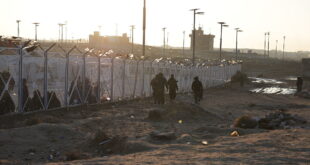 TEHRAN (FNA)- SASOL, the world’s largest coal-to-liquid fuel company, is commissioning new production capacity at its Arya polymer operation in Iran and its Qatari Oryx gas-to-liquid fuel plant, which will help boost full-year earnings.
TEHRAN (FNA)- SASOL, the world’s largest coal-to-liquid fuel company, is commissioning new production capacity at its Arya polymer operation in Iran and its Qatari Oryx gas-to-liquid fuel plant, which will help boost full-year earnings.
“We expect to see the benefits in our earnings during the second half of the 2008 financial year and into the 2009 financial year, when production at these plants ramps up,” Sasol CEO Pat Davies said in a statement accompanying interim results.
“Taking into account our assumptions on prices and currencies, the earnings for the full 2008 financial year will reflect good growth compared with the 2007 financial year,” he said, adding the effects of an empowerment transaction, which are expected to have material non-cash accounting effects, are not reflected in this outlook.
In the interim period, Sasol spent R4bn on its projects, including the Oryx GTL plant in Qatar, which averaged 9,000 barrels per day in the six months of ultra low sulphur diesel and naphtha. In December, average production topped 16,000 bpd.
Arya will achieve sustainable ethylene production in the first quarter of calendar 2008.
“The low-density and high-density polyethylene polymer plants are being commissioned and beneficial operation is expected in the second and third quarters of the 2008 calendar year, respectively,” Davies said.
Meanwhile, the outlook for the Escravos GTL plant in Nigeria, which is being built, is less rosy, with “a material increase” in capital costs expected at the project.
“The contract terms have been modified from a fixed lump sum to a reimbursable basis, the impact of which is still being evaluated. A material increase in capital costs is expected,” Davies said.
Sasol’s gearing has increased to 32%, which is 10% higher than the level at 30 June 2007, mainly because of a share repurchase program of 22 million shares. Since the start of the program in March 2007, nearly 5.9% of the company’s shares have been bought back.
Sasol’s operating profit was 15% higher in the period at R14bn, boosted by higher crude oil prices, which moved higher than the hedge positions in place for the synthetic fuels business and Sasol Petroleum International, leading to a cash outflow of R465m.
“The recognition of the fair value of the oil hedge resulted in an unrealized fair value loss of R1.1bn at the end of the period as a result of the significant increase in crude oil prices towards the end of December 2007,” Sasol said.
 Eurasia Press & News
Eurasia Press & News


